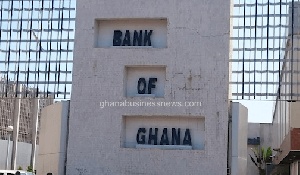- Home - News
- Elections 2024
- News Archive
- Crime & Punishment
- Politics
- Regional
- Editorial
- Health
- Ghanaians Abroad
- Tabloid
- Africa
- Religion
- Photo Archives
- Press Release
General News of Monday, 2 June 2025
Source: www.ghanawebbers.com
OSP uncovers widespread GES corruption involving fake schools and appointments
The Office of the Special Prosecutor (OSP) has found significant corruption in the Ghana Education Service (GES). This includes fake schools, forged appointments, and validation of non-existent staff, known as “ghost names.”
On June 2nd, during a two-day West Africa Regional Anti-Corruption Policy Dialogue in Accra, Special Prosecutor Mr. Kissi Agyebeng spoke about this issue. He emphasized the need for better collaboration between institutional leaders and anti-corruption bodies.
Mr. Agyebeng revealed various corrupt practices under investigation. He noted that both the Director-General of the Ghana Health Service and the Director-General of GES were present at this event.
He stated that they are witnessing new forms of corruption affecting education and healthcare. Officers are claiming money for non-existent schools, which is alarming.
Mr. Agyebeng warned about individuals carrying laptops with the Director-General’s signature. These people give out appointment letters while pretending to hire teachers.
He mentioned that more work has been done in education than in other sectors. Health teachers have also been validating payments for non-existent individuals.
Recently, six people were convicted in a plea bargain with OSP. They returned 106,000 cedis to the state.
Mr. Agyebeng stressed that corruption is overwhelming the nation. The focus should be on addressing these corrupt activities rather than just on recovered amounts.
In a joint investigation by OSP and the Controller and Accountant General’s Department (CAGD), GH₵2.85 million was found in unearned salaries paid to ghost names in Northern Region.
The probe identified unauthorized validators managing payrolls within educational institutions and at Tamale Teaching Hospital. A fictitious primary school in Kumbungu District had staff receiving monthly salaries despite not existing.
By blocking these payments and removing fraudulent individuals from payrolls, Ghana saved GHC34,249,737.60 for the 2024 financial year.











